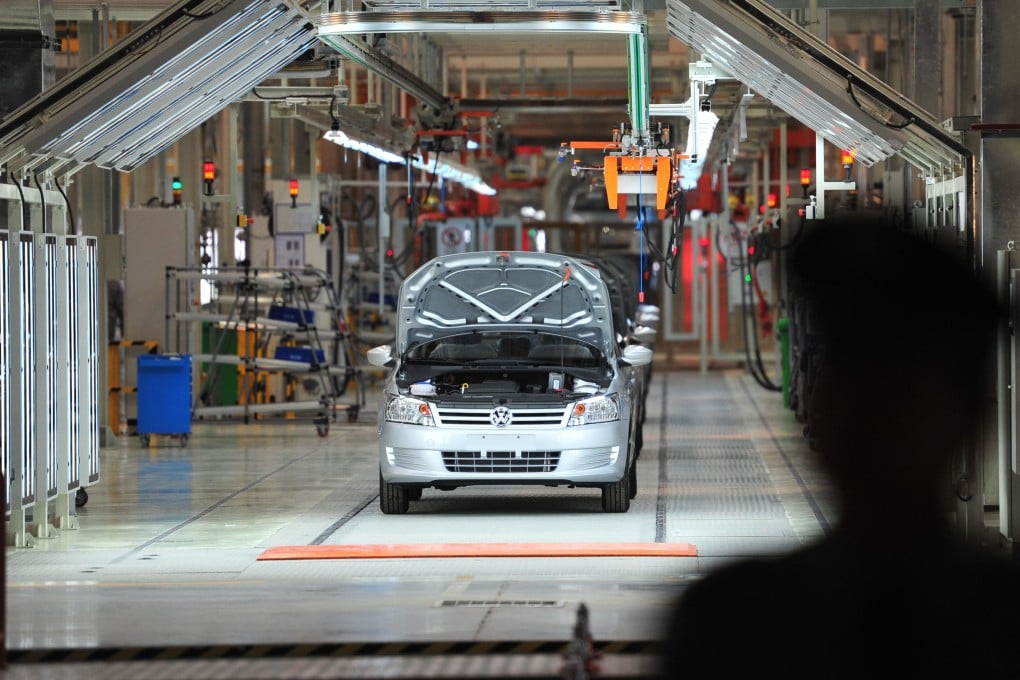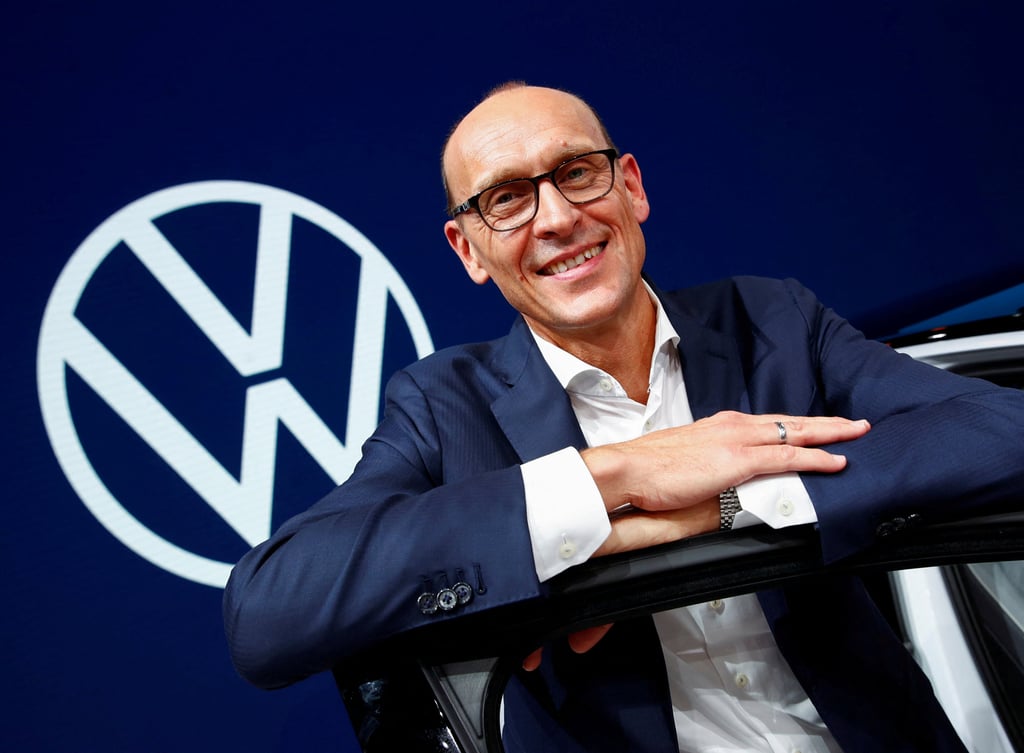Advertisement
Volkswagen stands by SAIC’s Xinjiang assembly despite rights concerns, saying it ‘looks like all other joint venture plants’ in China
- Volkswagen operates a plant with its Chinese partner SAIC Motor in Urumqi, the capital of the Xinjiang region
- While the site produced the New Santana model until 2019, the 240 employees there now make final quality checks on already assembled cars
Reading Time:2 minutes
Why you can trust SCMP
9

Volkswagen will stay committed to an automotive plant in Xinjiang despite persistent concerns of human rights abuses in the far western Chinese region.
The German carmaker said the facility in Urumqi – operated by a subsidiary of its joint venture with SAIC Motor Corp. – has a high standard and VW has no indication workers are mistreated. While the site produced the New Santana model until 2019, employees there now make final quality checks on already assembled cars.
“The JV plant looks like all other JV plants in China,” the company’s China chief Ralf Brandstätter said after visiting the facility this month. “Our partner has great interest in and is committed to ensuring a positive atmosphere and proper working conditions.”
Advertisement
VW has fielded uncomfortable questions about its presence in Xinjiang due to allegations that Uygurs and other ethnic minorities are suffering from oppression and coercive labour practices. China has repeatedly rejected criticism of the work programmes, calling allegations of forced labour lies and defending its policies as an effort to reduce poverty and unemployment. VW’s view has been that it can be a force for good in the region.

VW is under pressure to defend its position in China, its biggest market, against home-grown manufacturers offering models geared to local tastes. Sales in China have slid from a peak of 4.2 million cars in 2018 to 3.18 million vehicles last year. The likes of BYD and Li Auto are catching up fast, and they’re all-in on electric vehicles.
Advertisement
Advertisement
Select Voice
Choose your listening speed
Get through articles 2x faster
1.25x
250 WPM
Slow
Average
Fast
1.25x